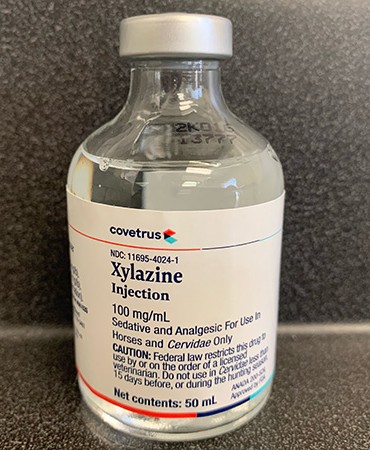The Metro Public Health Department (MPHD) is advising the public and community partners about the danger of using opioids (such as fentanyl or heroin) mixed with xylazine. Xylazine is an FDA-approved animal sedative that is not approved for human use. Also known as ‘tranq’ or ‘tranq dope’, xylazine has been increasingly detected among suspected overdose deaths in Davidson County during the last 3 years. It is often detected in combination with fentanyl, and most exposures are unintentional. MPHD, in partnership with the medical examiner’s office, local law enforcement and first responders, regularly monitors fatal drug overdoses involving opioids, xylazine, and other substances, yet there is limited data on the role of xylazine in non-fatal overdoses.
The illicit use of xylazine has been associated with serious and life-threatening side effects, including fatal drug poisoning and severe skin wounds that may result in limb amputation. Repeated use can also result in dependence and withdrawal symptoms such as severe anxiety and agitation. Xylazine is not an opioid and does not respond to naloxone (brand name Narcan), a medication that is used to rapidly reverse the effects of opioid overdose.
The Metro Public Health Department urges the community to be alert to the life-threatening dangers associated with xylazine and opioids. Users are encouraged to never use alone and carry naloxone.
At this time, there is no xylazine reversal agent approved for human use. During an opioid overdose, the presence of xylazine may render naloxone less effective. However, naloxone can still address the effect of an opioid on breathing and may prevent death. In Tennessee, a Good Samaritan Law grants civil immunity for individuals administering naloxone to someone they reasonably believe is overdosing on an opioid.
Signs of a Potential Overdose
- unresponsiveness.
- blue or grey fingertips or lips.
- slow, shallow or stopped breathing.
- gurgling or snoring noises.
What to Do if You Encounter a Potential Overdose
- Call 911 right away.
- If you have naloxone, give the person naloxone as directed by the 911 dispatcher.
- If no response is detected after two to three minutes, a second dose of naloxone can be administered.
- If the person begins breathing or becomes more alert, place that person in the recovery position, on their left side supported by a bent knee with their face turned to the side and their bottom arm reaching out to stabilize them.
- Stay with the person until first responders arrive.
Resources for the Public
Tennessee REDLINE
Tennessee Redline provides accurate, up-to-date alcohol, drug, problem gambling, and other addiction information and referrals to all citizens of Tennessee at their request. They can be reached by phone at any time by calling 1-800-889-9789 or by visiting Tennessee REDLINE (tn.gov)
Community Overdose Response Team (CORT)
The Community Overdose Response Team (CORT) can help those seeking treatment for drug addiction. CORT is a free and confidential resource to help find drug and alcohol treatment for individuals who are at risk of an overdose. The service is offered free of charge regardless of health insurance status. The team works with an individual to determine the appropriate level of care (e.g., detox, residential, or outpatient treatment, etc.). To make a referral or learn more about this resource for our community, call CORT at 615-687-1701.
STARS Nashville
STARS Nashville provides training and information about naloxone to the public. They can be reached at STARSNashville.org.

